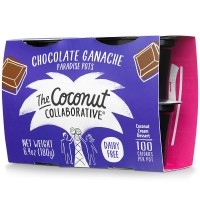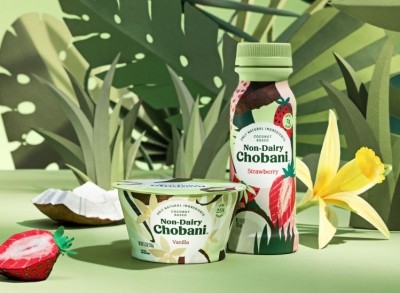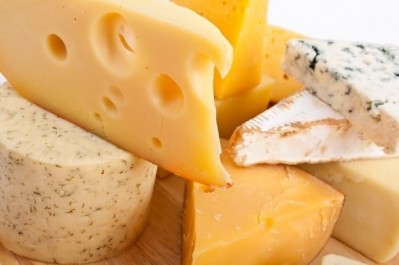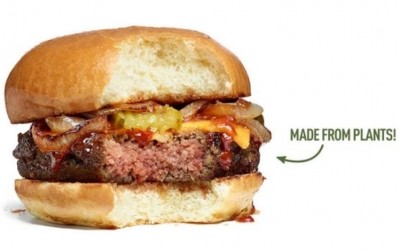The Coconut Collaborative eyes up west coast in next wave of expansion
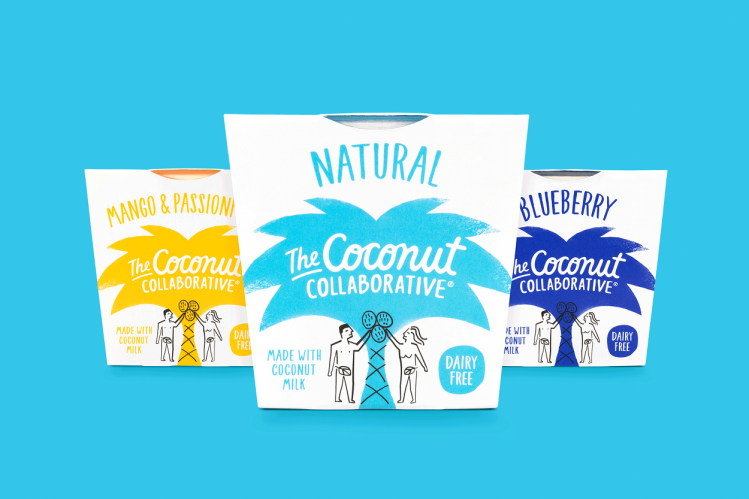
The company’s confirmed west coast listings include Nugget Market in California (appearing next month), New Seasons & Market of Choice in Oregon, and Metropolitan and Haagen stores in the Pacific Northwest by the end of the year.
Since launching in the US market, The Coconut Collaborative products are available in approximately 500 stores (not including recent west coast listings) such as Wegman’s, King’s Supermarkets, Earth Fare, Brooklyn Fare, Union Market, and Gourmet Garage.
Coconut Collaborative was started in the UK in 2014 by Edward Averdieck and his brother James, a long-time food entrepreneur who founded the packaged dessert brand Gü.
Edward spent most of his career in the music business, heading up a music download company and experiencing first-hand the industry shift from CDs to digital, which he compares to an evolution taking place in the food industry.
“I think the food business is going through a format shift as well from meat and dairy to plant-based,” he told FoodNavigator-USA.
Momentum for Coconut Collaborative yogurts and ganache ramped up quickly throughout Europe, according to Averdieck, and it wasn’t long before the company set its sights on the US market, debuting in February 2018.
While still just a small piece of the overall yogurt market, plant-based yogurt sales were up 55% to $162m as of June 16, 2018, according to Nielsen data compiled for the Plant Based Foods Association (PBFA).
“We absolutely think that a category will only really take off if there’s no sacrifice consumers have to make to move from one format to another,” Averdieck said.
‘We benchmark ourselves against brands like Noosa and siggi’s’
Averdieck felt Coconut Collaborative had a competitive edge against other plant-based yogurt options because of its flavor profile with consumers not having to make a sacrifice in taste when opting for the brand’s plant-based yogurts over dairy-based yogurt products.
“We started looking at the American market and got very excited about it because we could see that dairy free yogurts were taking off over here, but we felt that there was this problem being the fact that these dairy-free yogurts didn’t taste very good,” Averdieck said.
“We benchmark ourselves on taste against brands like Noosa and siggi’s.”
The company has a professional chef on staff who prior to joining The Coconut Collaborative spent time crafting desserts for British retailer Marks & Spencer.
Averdieck added that its use of coconut milk and coconut cream in its products gives an indulgent flavor and texture similar to dairy while maintaining a low sugar profile (7 grams for its original yogurt flavor).
“Coconut milk itself, if you look at plant-based as a category and it covers all sorts of products and bases, we believe coconut is the most similar, and importantly the most creamy, when compared to dairy,” he said.
Packaged desserts are stuck in the ‘70s
While its coconut yogurt portfolio is important to brand, Averdieck believes that its ganache desserts are going to bring some much needed innovation to the packaged desserts category.
“As we spend more time here, the one category that looks very dated when you go into a supermarket is the pudding category. Most stores have a desserts aisle or pudding aisle and it’s like looking into the 1970s,” Averdieck noted.
“It’s just ripe for innovation.”
The company makes a line of dairy-free ganache “paradise pots” in chocolate, lemon, and sea salt caramel. Unlike its yogurts, the desserts are non-cultured giving it a rich, indulgent taste.
“The baseline on desserts is if you can’t make a dessert taste good you don’t get to first base. We are incredibly excited about that category as well as yogurts.”
Oat Collaborative and Almond Collaborative
According to Averdieck, he sees great opportunity in creating similar plant-based yogurt and dessert lines. In the UK, the company recently launched and The Oat Collaborative and The Almond Collaborative yogurts and desserts.
Averdieck said that it doesn’t have plans to launch these brands in the US “straight away”, and is focused on growing its coconut products for the short- to medium-term.
